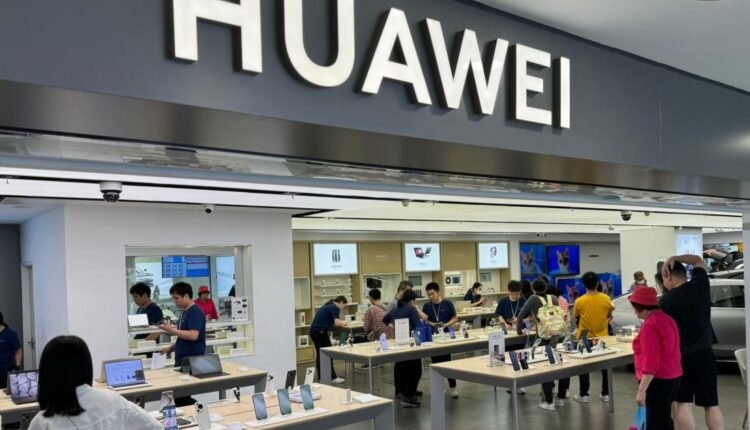©2021 Reporters Post24. All Rights Reserved.
GUANGZHOU — Huawei Technologies looks to complete its departure from Google’s Android operating system this year with the rollout of a new OS developed fully in-house, further sidestepping U.S. export controls that had cramped the Chinese company’s mobile business.
The new HarmonyOS Next ships with Huawei’s flagship Mate 70 smartphone due out later this year. It uses memory three times as efficiently as the current operating system, HarmonyOS, and supports on-device artificial intelligence.
The Chinese tech company said last month that the HarmonyOS ecosystem has expanded to 4,000 apps, a list that includes Alibaba Group Holdings’ Alipay platform and the McDonald’s app. Huawei aims to reach 5,000 within the year, and eventually top 500,000.
Xu Zhijun, Huawei’s rotating chairman, called the new OS a “top priority” for this year and said the company will “invest strategically” in it.
Huawei initially used Android for its devices, before U.S. export controls imposed in 2019 blocked it from key parts of the Google ecosystem, such as Google Maps and the Chrome browser.
This led the company to switch to its current HarmonyOS in 2021. But though that was developed by Huawei, it was still based on Android, because apps designed for Android would be unusable on a completely incompatible OS.
HarmonyOS Next, reportedly built completely in-house, marks a major step forward in mitigating the risks posed by the U.S. sanctions.
The current HarmonyOS was originally created for Internet of Things applications, and as such was designed to work on devices like home appliances that have little processing power.
With HarmonyOS Next, “we aim to realize an even broader range of IoT connections and smart functions,” a Huawei representative said.
The company appears to have its automobile business in mind with the OS as well. In addition to supplying automotive chips, Huawei has partnered with multiple automakers on vehicle brands under the banner of the Harmony Intelligent Mobility Alliance. Those vehicles use HarmonyOS to handle features such as air conditioning and music.
When HarmonyOS was introduced in 2021, even many Chinese companies stayed on the sidelines at first. Huawei’s smartphone sales were slipping at the time, as the American sanctions left it without access to chips that could support high-speed fifth-generation wireless.
This changed in 2023 as Huawei’s smartphone sales rebounded in the latter half of the year, sparked by the August launch of the Mate 60 Pro, which featured homegrown chips capable of 5G-equivalent speeds.
More hit products have followed. When Huawei announced the rollout of the Pura 70 on April 18, customers lined up at its flagship store in Shenzhen to get their hands on the new model.
“My current smartphone is a Huawei, and the next one I buy will be, too,” said a woman in her 40s at a store in central Guangzhou.
Canadian research firm TechInsights forecasts that Huawei will sell 10 million Pura 70 handsets this year. Those sales, combined with the Mate 70, are expected to return the tech company to the top of China’s smartphone market this year after a long absence.
Uncertainty remains over whether HarmonyOS Next will take off alongside the smartphone rebound. Companies will need to rewrite their apps for the new operating system, at a substantial cost.
One key player in determining its success will be Chinese company Tencent Holdings. Tencent has yet to say whether it will port its WeChat superapp, which boasts more than 1 billion users, to the new OS.
WeChat features “mini programs” that let users access services from other companies within the app, such as online shopping or food delivery. Tencent can collect information on usage of these mini programs, and is believed to be in a tug of war over this with Huawei, which wants to get more data.




